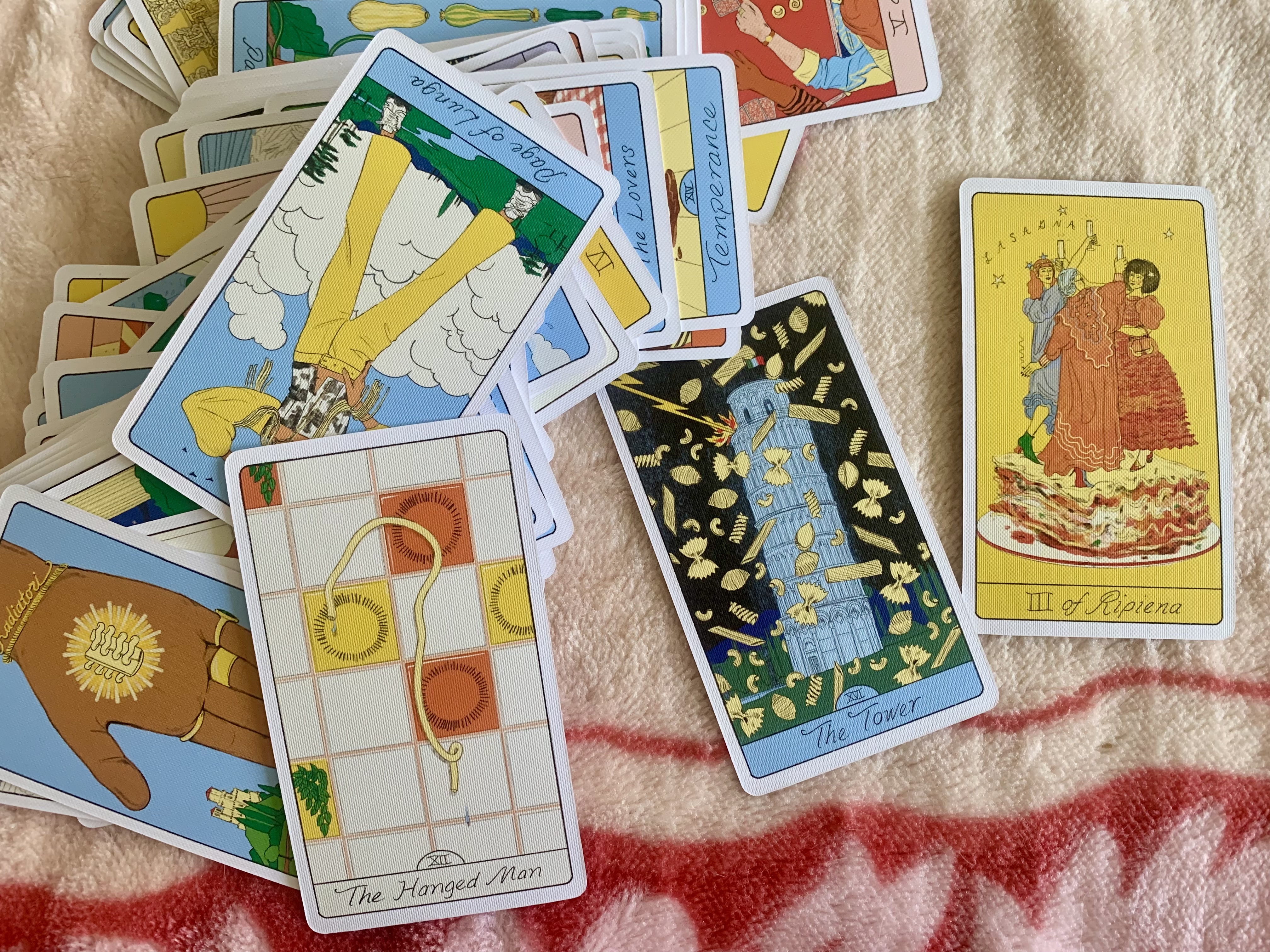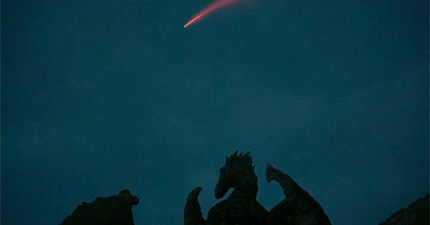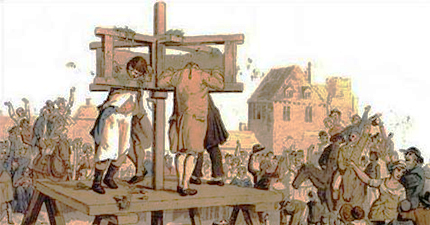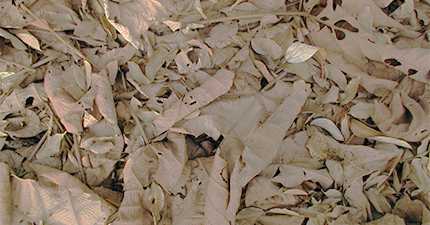Today, I got the chance to speak with Jeff Petriello, one of the designers behind The Pasta Tarot. The Pasta Tarot, co-designed by Jeff, Rob Truglia, and illustrated by Lindsay Mound (lindsaymound.com), re-imagines the modern tarot through the delicious world of pasta and Italian-American tradition. It is made by queer Italians for all kinds of people.
I’ve known Jeff online for a couple of years and have always loved his playful attitude towards divination. He first sent me the Pasta Tarot a couple of years back. I’ve always been somewhat intimidated by tarot because I know so little about it but, as I’ve been reaching for the cards these last few years, I’ve found the Pasta Tarot to be a nutritious and grounding source of support. It’s hard to describe what the Pasta Tarot has meant to me recently. It feels like eating pasta. It’s not quite comforting but nutritionally complex and strengthening.
You can find the Pasta Tarot at pastatarot.com. Without further ado, I’m so excited to share Jeff’s words about his creative process, friendship, food, and the often underestimated power of play with you.
Ace: I’d love to hear about the origin story for Pasta Tarot. In the booklet for the deck, you mention that the idea for the Pasta Tarot deck came together when you saw a hunky guy on the beach and all of you said “gnocchi” out loud. Would you be willing to share what it’s been like to go from that moment to the crafting of the deck to now seeing the deck get used by people out in the world?
Jeff: I am so happy to be speaking with you today but I am just like a representative. This deck is definitely a collaboration. I worked with my co designer, Rob Truglia, the entire way and the deck was illustrated by Lindsay Mound who did an absolutely incredible job bringing those designs to life.
So, full disclosure, the blurb in the booklet is a little bit of a white lie. What really happened, the actual origin of it, was that I saw Rob doing pasta aura readings for people on Instagram. He was basically asking people a question and then telling them what pasta shape they were. I just thought that this was absolutely amazing for so many reasons. I didn't realize that there were metaphysical attributes of pasta shapes. Tarot has and always will be my main metaphysical tool, if you will, ever since I was like a teenager. Naturally, I just immediately like, “There's so many pasta shapes. I bet we can match these vibes up and make a deck.”
I pitched the idea to Rob. He was like, “Hell yeah, let's do it.” He didn't know anything about tarot at all so the co-designing was him bringing the pasta shape vibes and knowledge. I was bringing in the tarot expertise. The story of the guy on the beach with gnocchi is a true story but it's actually the true story of how the pasta aura readings were kicked off—the seed of this project.
To me, play is an incredibly powerful lens and an incredibly underutilized one when it comes to tarot.
Ace: How long did it take y'all to make this?
Jeff: It was about a two year design process from like, kicking off the idea to actually launching the Kickstarter. It started before the pandemic, but it became something that helped us get through that moment together.
We sat down and made a master game design spreadsheet. I approached this very much from a game design perspective, very much from a play oriented space. That was my guiding principle. Because to me, I have a master's in game design and I work in games for my full time job. That's the lens that I look at a lot of stuff through.
To me, play is an incredibly powerful lens and an incredibly underutilized one when it comes to tarot. The history of the tarot is like a history of play. That deck was used for play for hundreds of years before it was used primarily as a divinatory tool. Most of the tarot's history is actually being utilized as a playing card deck. And I think that that is infused in the object. You cannot separate those things. That was how I wanted to approach it. I used tools that I would normally use to design games to design this deck, one of which being Google Sheets. We basically spent months going through each card. There were some fundamental structural questions that were so interesting to tackle and answer. What are the suits? How do we divide those up? Where do the pastas fit in? What do we do with court cards? What do we want the major arcana to be? The idea that there is a pasta in every major arcana card came from Lindsay super late in the game. Even up until the end, we questioned things. I would basically run a little mini tarot lesson with Rob about the cards and read from multiple sources—tertiary associations, like astrological associations, elemental associations. Rob would ask questions and we would think about the card visually.
It was also really important for us for this deck to be accessible. To me, that translates to being in the genealogy of the Rider-Waite-Smith deck. I wanted Pasta Tarot to be a deck that could comfortably be someone's first tarot experience. To me, again, tarot is play. I wanted to demystify it and open it up in a spirit of inclusivity and joy rather than esotericism. I wanted it to peel away layer by layer with the outermost layer being a delight.
After we made that giant spreadsheet, we sent it to Lindsay and she would execute them suit by suit. We would do, we contractually included like two rounds of feedback, but we rarely needed that. There were some that were completely Lindsay’s design. A really great example is The Hanged Man. The idea of the spaghetti being on the wall as the hanged man was all her.
Ace: I don't think I've ever heard someone talk about tarot as a history of play before.
Jeff: Yeah, another reason that we felt, I felt, so strongly about this project was because tarot is also an Italian object. It originated in Italy. It has this history with this culture that has kind of faded away. Tarot really gets popular in France so you immediately have this division from its origin. For instance, the original name of the Hierophant was the Pope. For us, going back to the Pope is a shout out to that history.
Ace: I’m glad you used the Pope, because I'm always like, what's a Hierophant? I know who the Pope is but I have no idea what a Hierophant is.
Jeff: The Hierophant was a decision by The Golden Dawn to make the tarot—they had the opposite goal that I had—to make the tarot more esoteric and to make it more linked to big mysteries and all this stuff. The Hierophant is sort of a branding move.
Ace: The deck feels really accessible. Every time I've used it, there's also these layers that come out. There’s a lot of nutrition.
Jeff: There's Easter eggs in there that, still, nobody has found. I'm gonna tell you one. In the Tower card, we were like, obviously this needs to be the Leaning Tower of Pisa. We don't really have to think about it. But, you'll note, in front of it is this foreground of this rain of pasta which was a byproduct of Lindsay saying that we need a pasta in all the Major Arcana cards. If you notice what shapes they are, you will know that every single one of those pastas is in the suit of Corta. The suit of Corta is the suit of Wands, which is the suit ruled by fire. It is a rain of fire.
Ace: I did not notice that. The one I noticed was the Strength card where the person is feeding the lion some lasagna and the Three of Ripiena where the three women are dancing on top of lasagna. I thought that was such a great connection because the Three of Ripiena is about friendship—you feed your courage friendship and it gets big and strong like a big cat.
Jeff: I'm so glad that you found that because that's purposeful. The Three of Ripiena, which is stuffed pastas and our analogy for cups because you can fill them just like you can a cup, is one of my favorite cards in the tarot. I define it in the little booklet as compersion or joy that you feel for others. That card was directly inspired by the memes of Meryl Streep on food from 20161 because it was just ridiculous. Lasagna was one of Rob's pasta auras that he would read for people that he thought were really community-oriented. Lasagna brings it all together. It's this layered pasta. In between is the sauce and the cheese. One bite of lasagna, you get everything in it. This idea of community is enfolded in that idea. That's how we matched the lasagna to the Three of Cups. Lindsay then made an orange cat that we all know who loves lasagna. The Strength card is essentially a giant cat that you feed lasagna to.

This is what I'm talking about with play. That was playful but the byproduct of it is actually substantive. The idea being that you feed your beast community and joy from relationships is a beautiful metaphor. That's the result of just having fun.
Ace: You know, the Three of Cups is the card that my cat always pulls. I sometimes show her a deck and she’ll pick one with her nose and she usually picks that one because she likes eating with people. The lasagna being community and compersion and togetherness is so available for anyone who's ever eaten lasagna. It’s something you eat with other people.
I actually did a pull with the Pasta Tarot deck recently for the protests happening right now. The Empress and the Ten of Cups, the one with Marsha P. Johnson, came up. The deck feels very realistic but also very queer.
Jeff: The deck is extremely and purposefully queer. That was the big, the big revelation for me and Rob that wound up being one of the most beautiful parts of this. We did not expect this deck to mean what it meant to us by the time we got to the end of the process. We just wanted to have fun making a pasta deck but what we wound up doing just by nature of working together was uncovering all of this shared experience that we had as queer men growing up in this Italian-American culture within the tri-state area which is hyper-specific and also homophobic and misogynist.
There's a lot of beautiful parts to it but there's also a lot of not great parts to it too. We realized, through it, what we didn't have. Like, we had avatars, we had badasses, we had dudes that we could certainly lust after within that culture but we didn't have a direct representation in many ways. In fact, the only thing we had was that episode of The Sopranos where it winds up being really bad with Vito being a gay leather daddy. This object became the dream world that we wanted to live in. That was not something that I expected when we started.
Ace: The deck also feels very real. I've been using Pasta Tarot recently and this is a time when a lot of immigrants are being targeted. I was doing a reading about ICE and the Page of Minuta showed up which is a card that depicts a nail salon worker. That just felt so uncanny because nail salons are one of the places that ICE is currently targeting.
Jeff: For us, beauty and fashion were always a part of Italian American culture but we wanted this deck to appeal to people from any background. It was important for us to depict all sorts of people. I always think of that card, the Page of Minuta (tiny pastas) or the Page of Pentacles, to me, is a prodigy. At the time, we were amazed by incredible nail artists. This is someone who might not have a ton of experience but is an incredibly industrious person. This is someone on the ground who is just killing it. You know what I mean? Bringing joy at this human level with people one on one. Who knows what they're going to do with it? Are they going to start their own salon? Who knows? I think that's like a very common immigrant aspiration. What can I do with the skills that I have? There's so much potential in that page. Nail artists—they're killing it.
I'm glad that you are finding Pasta Tarot specifically useful right now because it was pretty revelatory for me and my understanding of my relationship to immigration. My grandfather who passed away last year was from Italy. He immigrated from Italy and his wife, who I never met—her parents immigrated from Syria. On the other side, I'm two generations away from another set of Italian immigrants. I am not an immigrant. My father is not an immigrant. I never understood what my relation to the immigrant experience was. I have always been American for better or for worse.
One card that comes to mind for me right now is the Ten of Minuta or the Ten of Pentacles. How I chose to depict that is a moment my grandmother would look at and say that "I succeeded". That was where I was in my frame of mind when designing that card. I realized that those ideas are very much rooted in an immigrant perspective and experience and making this deck really taught me my connection to that experience. My family, especially on my father's side, went out of their way to assimilate as much as possible and that ignorance was purposeful. Designing the deck cracked it open.
Ace: Someone I know, an artist, writer, researcher, and astrologer named Nadia Maria Nacca, shared recently in one of the Star Kids Club monthly newsletters that there is a fig tree in Los Angeles which has become a neighborhood hub for migrants coming into the city. This fig tree was first planted 65 years ago by Italian immigrants.
Jeff: My grandfather used to come around every fig season to bring figs to each family member. That was always a special treat.
Ace: There’s something very moving about Pasta Tarot. Every time I’ve used the deck, I've felt moved in some way.
Jeff: I think a bit of it was luck just in terms of who I wound up working with on this. Rob and I basically fit. Not all friendships are meant to work together so that was just a miracle. We found Lindsay whose mother was a tarot reader. Her mother's actually featured in the Star card. The vibes were just good in terms of the people.
But for me, and I hate to say this because it's so annoying, divorcing this project from any expectation whatsoever was so empowering. I was fresh out of my master's program. When you're in grad school, you're working on a ton of stuff, but it's really hard to learn it all, right? I walked out feeling great about how to ideate and prototype and grow a product but I never got the chance to actually put one out. I never learned about funding. I never learned about manufacturing in a real sense. I never learned about distribution. I came out of school being like, “I want to learn how to do that.”
This was not about making money. This was not about doing something on time. This was about—can I do something exactly the way that I want to do it and can I actually get it out there? In school you have deadlines or teachers. At work you have bosses and your livelihood on the line. This was a realm that I could create for myself. I'm working with other people. I have to convince them and I have to also be convinced. At the end of the day, I knew that there was no reason for me to compromise.
Ace: Y'all did a fantastic job. It's a really, really incredible deck.
Jeff: Thank you. I think one of the things that made me feel like it was a success was seeing YouTube unboxings and reviews from real tarot people talking about what made them laugh. I could see serious divinatory people looking at me and being like, “What the? Why did you make a pasta themed tarot deck?” It sounds like a gag. I kind of love that because of the playfulness of it all. To me, that's part of the gag. Yeah, it seems silly. Yeah, it seems ridiculous. But, when you actually open it, and if you know anything about tarot, you start to realize that this thing is deeply connected to the tradition and deeply connected to the genealogy that it comes from in very purposeful ways. As a Scorpio, I love that.
Ace: The deck does make you laugh. It makes you hungry too. Physically but also emotionally. Margaret Atwood once said that the books that you remember are the ones that describe food.
Jeff: Very much so. There's something so instinctual about food. You can use this deck to eat intentionally. My dream, and I hope I get to do it one day, is to make a guidebook for Pasta Tarot that’s a cookbook. The idea is to make your dinners a spell.
One of them that comes to mind for me is like the Eight of Cups, the one where you're walking up the mountain away from your cups. In our deck, that's the Mezzelune and it shows this beautiful woman staring off the Amalfi Coast after finishing her meal. Her glass of wine is empty. Her crab, which is a reference to the rulership of Cancer to that card, is shelled, and she's off looking into the distance thinking about what's next. I would love a Mezzaluna in a crab sauce meal. That gets you to eat your ideas quite literally. The thesis of this deck is that food has meaning.
Ace: Food has so much meaning. You eat it, you prepare it. I hope you make this.
Jeff: I would love to. If I ever do, I want to work with an herbalist. I think the third factor in the deck are the non pasta ingredients. What are the spices that can amplify this? How can you combine those things?
Ace: What are you working on now?
Jeff: I do have the privilege of working on a new tarot deck with some different collaborators. I'm working with a friend from grad school named Jack Schlesinger, who's executive producing a new deck. I'm working with a great tattoo artist in Brooklyn who's tattooed me a few times named Gerald Feliciano. It's called the Americana Arcana and it is a tarot deck of American traditional tattoos meant to double as like a flash book. Every single card is drawn by a different tattoo artist. We are trying to showcase American tattoo shops, the artists that live within them, and the range of expression within this particular style.It's a very different project because, instead of working with one illustrator, we're working with eighty. It's looking really cool and I can't wait to see how it turns out.
Other than that, my full-time job is game producer at the New York Times. I am also a professor at NYU where I teach game design. I'm doing my seventh year in the fall, which is crazy. So, yeah, that's where I spend my time.
Play is powerful in many ways, because it is underestimated or looked down upon. I don't care if you think you're a gamer or not. You play one way or the other. Or, you witness play at the very least. It's just so much more important than people give it credit for.
Disarming superstition was part of this project. If I’m sitting around with it with my friends and someone wants a reading, I will 100% of the time, as soon as I'm done, be like, “Okay, now you give me one.” They'll always be like, “I don't know how to do it.” And I say, “I don't care. This is a game. Play with me. I'm here to help you. I have some rules that I follow and I can share them with you. You just have to play.”
Ace: I think that Pasta Tarot is the perfect deck for bringing out to a picnic with friends. Shuffle it together with some BTS Uno cards and some leaves.
Jeff: It’s not a deck for your altar. It’s a tarot deck for your kitchen counter.
Thanks for reading this interview! Again, you can find the Pasta Tarot deck at thepastatarot.com. Check it out please! I receive no money at all for my recommendation. I’m just a huge fan of the deck.


